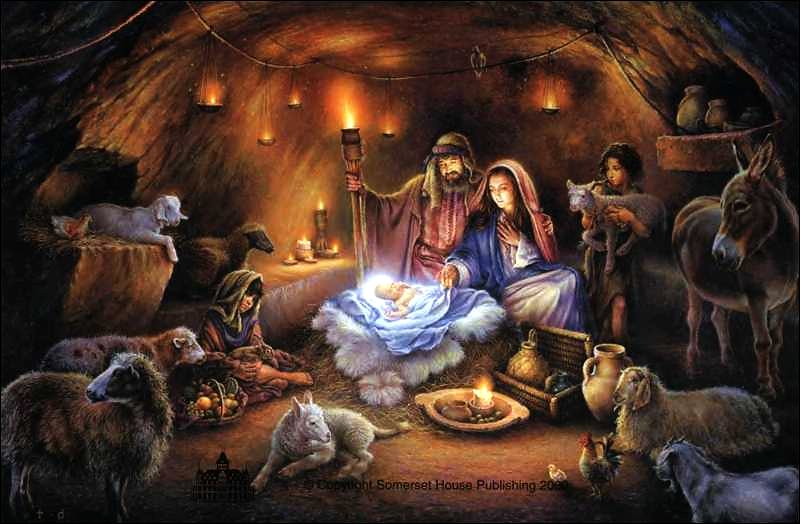The only creatures that were stirring were my keyboard and mouse.
The child was all snug in her bed as visions of Rudolph danced in her head.
Ma with her icepack, and I with my webcam, had just finished eating our Christmas ham.
When on instant messenger, there arose such a clatter, I sprang from my ergonomic chair to see what was the matter.
I turned on the monitor and cranked up the sound, away to my sign-in I jumped like a hound, when what to my wondering eyes should appear,
But a host of heavenly emoticons saying, 'Don't fear.'
They spoke with such power and blinked with such force, I knew in a moment they came from the Lord.
More rapid than pop-up ads I clicked, following the links to the one God had picked.
He was dressed in swaddling clothes, laying in a manger, But he was a King, not just a stranger.
Giving a nod was Mary his mother, Joseph was there too among others.
Then the connection was lost, the portal was closed,
But I heard the angels before it faded from sight, 'Peace on Earth, Good Will to men on this first Christmas night!'











.jpg/215px-Michael_Jackson_and_President_Bush_2_(cropped).jpg)









